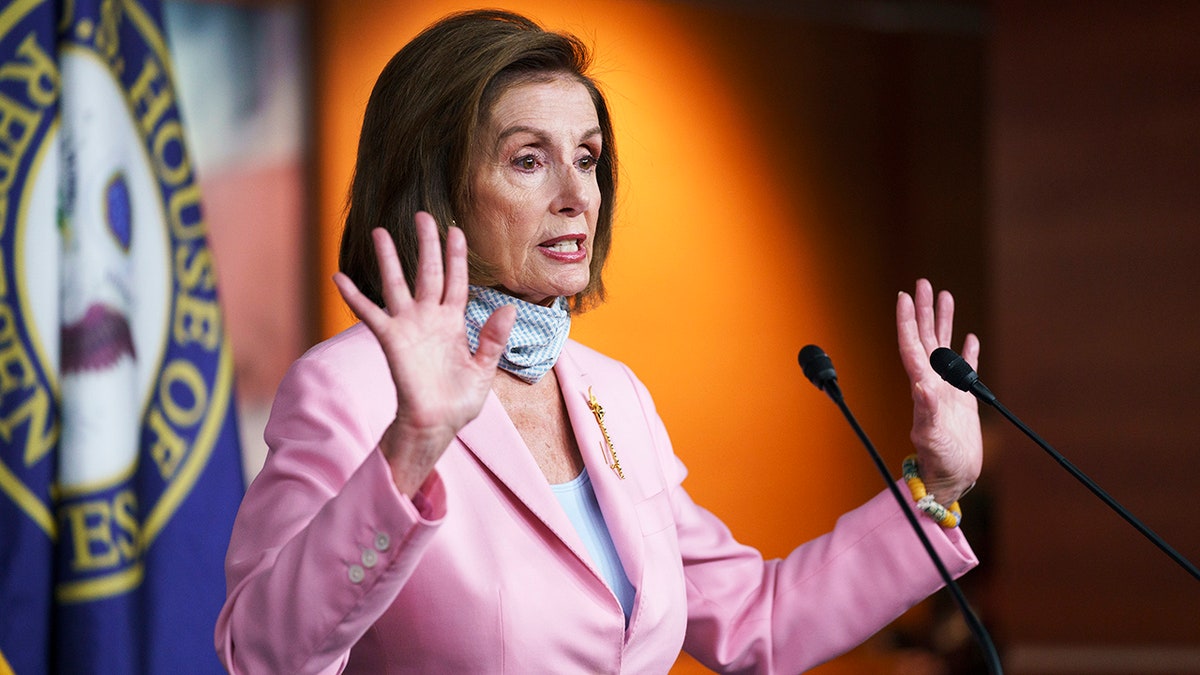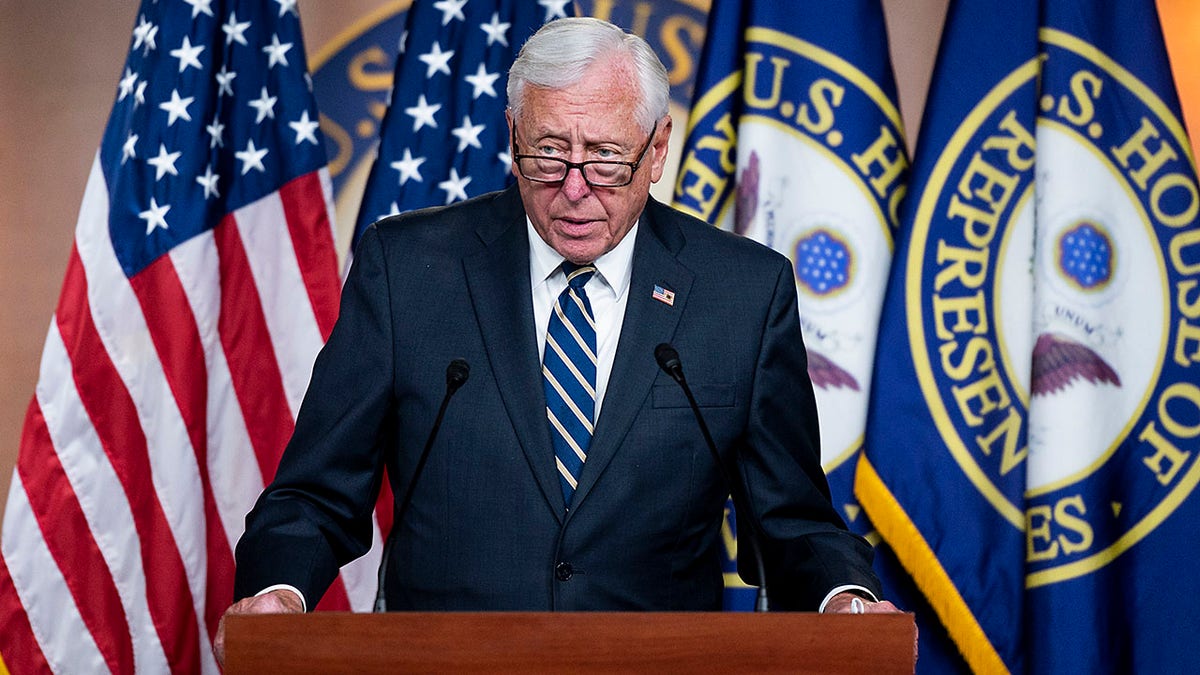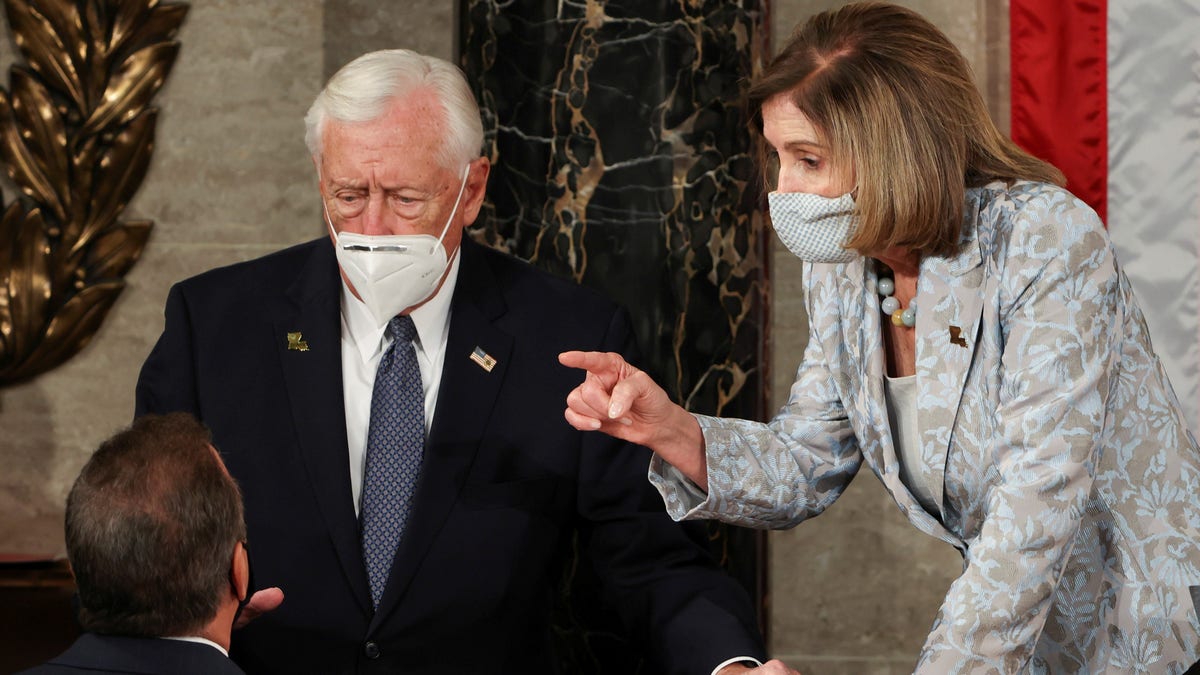Biden urges Democrats to ram through Build Back Better bill
Democrats can't agree on massive spending plan; 'The Five' react
EXCLUSIVE: Rep. Jim Baird, R-Ind., is raising objections in a letter to House Speaker Nancy Pelosi, D-Calif., and House Majority Leader Steny Hoyer, D-Md., about the length of time a vote for the House to adjourn remained open Friday. It gave Democrats time to negotiate the infrastructure bill and spending package, Baird argues.
The vote, which was supposed to be a 15-minute process on adjourning the House, turned out lasting seven hours and six minutes as Democrats negotiated throughout the day, keeping the motion to adjourn vote open and delaying other House business.

Speaker of the House Nancy Pelosi, D-Calif., meets with reporters at the Capitol in Washington, Wednesday, Aug. 25, 2021. (AP Photo/J. Scott Applewhite)
After being opened at 8:12 a.m. ET, voting on the motion to adjourn was closed at 3:18 p.m. ET Friday, following a move by Democrats to begin floor debate ahead of a procedural vote on the spending bill.
"Intentionally holding a vote open for hours on end to score political points is a gross misuse of House procedure and sets a precedent for further highly partisan political stunts that will drastically hinder this body’s ability to fulfill its chief responsibility to govern," Baird told Fox News.
"While votes are often held open for a period that exceeds the initial time pronouncement due to logistics and varying circumstances needed to enable all available members to reach the House floor and cast their votes, the reasons for keeping this November 5 vote open for an indefinite amount of time were exceptionally unclear and unreasonable," Baird wrote in the letter, which he expects to send Monday. "This is not how the People's House should operate."

House Majority Leader Steny Hoyer, D-Md., speaks during the House Democrats press conference Wednesday, July 22, 2020. (Photo By Bill Clark/CQ-Roll Call, Inc via Getty Images)
In the letter, Baird argued that the "purpose behind holding any vote is to reach a consensus among members," adding it was "clear early on in this vote, after an overwhelming majority of members participated, that the motion was going to fail."
CLICK HERE TO GET THE FOX NEWS APP

U.S. House Majority Leader Steny Hoyer, D-Md., and Speaker of the House Nancy Pelosi, D-Calif., wait during votes at the first session of the 117th Congress in the House Chamber at the U.S. Capitol Jan. 3, 2021. (Tasos Katopodis/Pool via REUTERS)
"When Congress is in session, voting is the most important duty that any member has," Baird wrote. "That, however, should not embolden Leadership to effectively freeze members' time for undetermined periods by creating uncertainty over how long a particular vote time is going to last or whether Congress is even going to call for more votes on the same day."
Baird slammed the delay as "all too commonplace in the 117th Congress" and said the practice is "not necessary, nor appreciated."














































